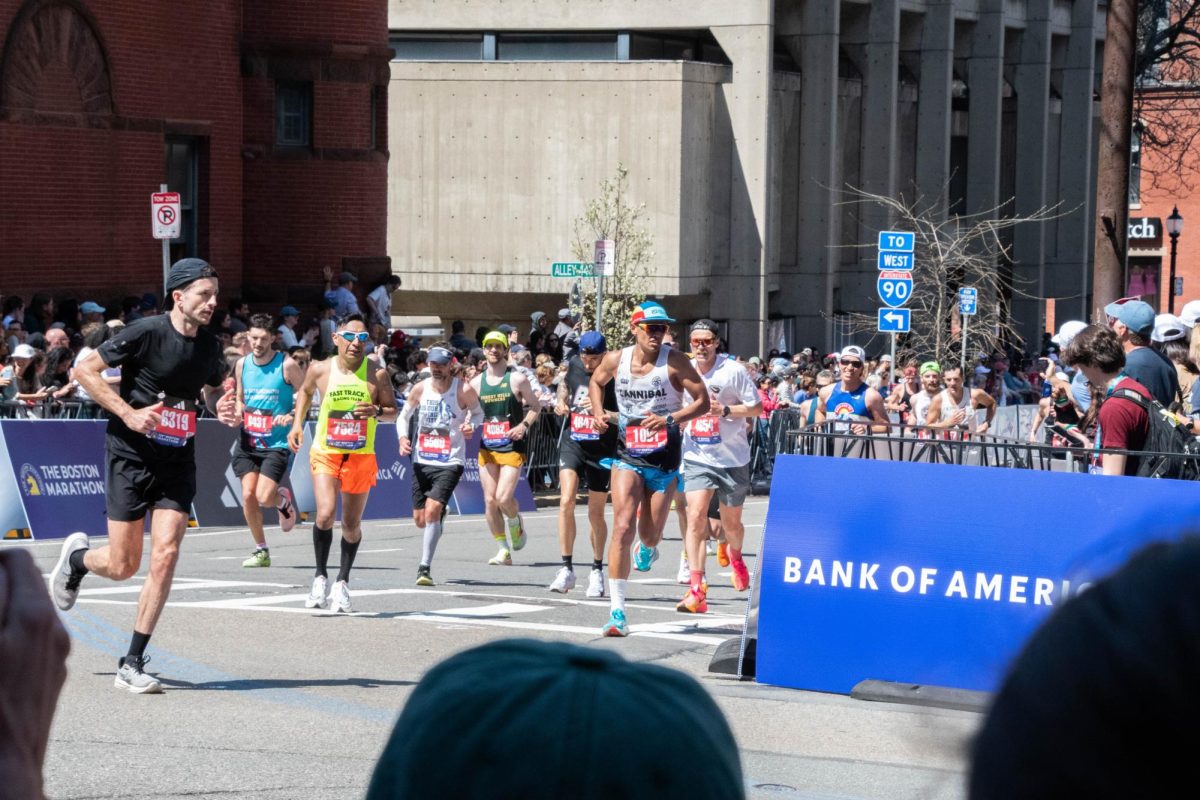By Amanda Ostuni, News Correspondent

Thirteen years after the 1999 release of the movie “Message in a Bottle,” his first book adapted for the big screen, author Nicholas Sparks adds a seventh film adaptation to his resume with the release of “The Lucky One.”
The movie, which hits theaters April 20, revolves around a soldier named Logan Thibault who comes across a woman’s picture while on a tour of duty in Iraq. After he finds the picture he experiences narrow escapes and good fortune, and upon returning home, becomes desperate to find the woman in the photo and thank her for his luck.
When he finds her he can’t come up with the courage to show her the photo and explain why he’s there so he takes a job at the kennel she runs and harbors this secret. The more time they spend together, the more they start to fall for one another but the woman, Beth, has a complicated life. She has lost someone dear to her and she has a son with her ex-husband who has a habit of meddling in her life, threatening her and not giving his son enough love and kindness. As Beth gets closer to Logan they must find ways to deal with their baggage or lose the relationship they both desperately need.
Starring former “High School Musical” actor Zac Efron and Taylor Schilling, a Hollywood newcomer with only one movie and the short-lived show “Mercy” on her resume, the movie has all the elements of a typical Sparks story: Two people comes together despite their personal baggage and must overcome obstacles to keep their love alive. As part of the Sparks formula, it’s set in the south complete with beautiful scenery to help create the perfect atmosphere for a romance.
Yet despite the redundancies with Sparks’ previous film adaptations, “The Lucky One” has its own flavor, and a delightful one at that. While it has its tear-jerking moments, it also provides the audience with opportunities to laugh, more so than other Sparks stories like “A Walk to Remember” and “The Notebook.” Many of the scenes create an atmosphere of gravity mixed with humor that could bring tears to one viewer’s eyes and a smile to another’s face. As the couple’s romance becomes more intimate and Logan bonds with Beth’s son, Ben, the characters’ interactions show these emotionally complex moments.
Schilling, who plays the lead character, Beth, found this aspect appealing. “I think the cool thing about a film like this is it’s totally OK for it to be however you interpret it,” Schilling said in a roundtable interview with press.
One of the reasons the film successfully portrayed this funny-but-serious vibe is the performance of the actors.
Though inherently a good-natured, easygoing guy, Efron’s character must cope with some level of Post Traumatic Stress Disorder (PTSD) as a soldier home from the war. Efron does a convincing job of portraying these two contradicting characteristics, though there could have been more instances where his PTSD was evident. In the beginning he overreacts to loud noises and his nephew sneaking up on him, but after that the only time where he appears scarred from war memories is during a confrontation with another character.
Schilling’s character has endured loss and struggle in her life leading her to be reserved and closed-off, but there were moments in the story where it was clear that she wanted to open up and to be strong and free – and that all she had to do to make that happen is to give in to that part of her. Through their interactions, facial expressions, key speeches and purposefully awkward-yet-passionate intimacy scenes, the actors do a great job of conveying their internal struggles.
The film’s supporting actors also provide the story with a lot of its emotional moments – both happy and sad. The talented Blythe Danner (“Meet the Parents,” the original “X-Files”) lends her skills as Beth’s grandmother offering comical bits of wisdom at the perfect moments.
Schilling said her most exciting memory of the movie (aside from the original call informing her she’d landed the part opposite Efron), was finding out that Danner would be playing her grandmother. Schilling had only positive things to say about the other actors who portray characters also critical to the story.
“Jay Ferguson, the guy who played Keith [the ex] is one of the most loving, funny, jovial guys you could ever meet,” Schilling said. “I felt so comfortable with him as a person that it was really safe to go to these darker places with him because I felt really comfortable around him.”
Schilling also said she loved working with Riley Stewart, who plays the ten-year-old Ben. When an audience member at the screening said Stewart stole the show, Schilling didn’t hesitate in nodding her agreement.
“Two of my favorite things is working with dogs and kids,” she said. “The kennel was there the whole time so in breaks we got to play with dogs and [Stewart] was so fun and wanted to play with the dogs all the time. We had a great time.”
An especially noteworthy element that gives “The Lucky One” its distinct flavor is how much life is given to the female lead. Contrary to many romantic movies where the woman’s life as we know it begins at the first scene she’s in, so much of the story revolves around Beth’s past; readers and viewers are given a strong back-story on her. Schilling said this was one of the things that first jumped out to her when she read the script.
“She’s a fully fleshed out woman and that’s just thrilling,” Schilling said. “The idea of being a single mom really just putting yourself on the backburner a bit to do the best thing you can by your family … makes it exciting and dramatic for me as an actor.”
Two other components of the film that make it a captivating experience are the lighting and music. The sun seemed to hit right on the faces of the characters during intimate scenes, accenting their happy, loving faces. While arguably over the top and cheesy, in the spirit of what a romance story is meant to be, it adds to the magic of their budding relationship. As far as the music goes, Mark Isham and Hal Lindes create a beautiful score that helps convey from an early point that this is going to be a story that is serious and light at the same time.
Beyond the love story, the film contains valuable messages worth hearing: The most obvious one – everyone has a destiny but they can choose whether or not to follow it – and two that Schilling mentioned.
“We can find our voice and walk through what scares us the most … [and] … exactly as you are, you’re worthy of love,” Schilling said.
Despite a few issues with the plot itself, like the climax scene, the inconsistency of PTSD signs and the lack of visual war flashbacks, Schilling picked a good movie to launch her name. Sparks’ fans will love it for its adherence to the formula they adore and those who aren’t usually into Sparks or romance stories will enjoy it for the comedic undertone embedded in the story and performances. It also maintains a foreboding of something bad that was hard to guess at, giving it a suspenseful edge.








